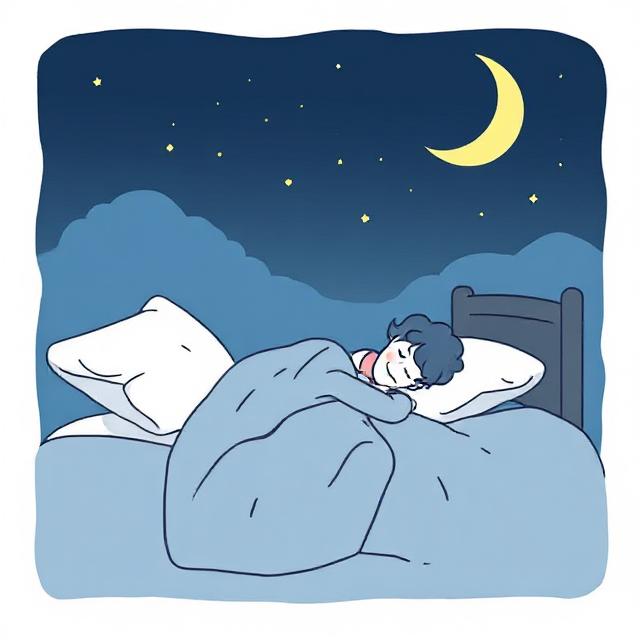How Much Sleep Do You Need? The Ultimate Guide to Sleep Requirements by Age
Sleep is one of the most fundamental aspects of human health, yet millions of people worldwide struggle to get adequate rest. Understanding how much sleep you need based on your age is crucial for maintaining optimal physical health, mental well-being, and cognitive performance. This comprehensive guide explores sleep requirements across different life stages and provides evidence-based recommendations to help you achieve better sleep quality.
Why Does Sleep Duration Vary by Age?
Sleep needs change dramatically throughout our lives due to biological, developmental, and lifestyle factors. During infancy and childhood, the brain undergoes rapid development, requiring extensive sleep for neural growth, memory consolidation, and physical development. As we age, our sleep architecture evolves, with changes in sleep stages, circadian rhythms, and overall sleep efficiency.
The sleep-wake cycle is regulated by our internal biological clock, known as the circadian rhythm, which responds to light and darkness cues. This rhythm shifts throughout different life stages, explaining why teenagers naturally stay up later and wake up later, while older adults tend to go to bed and wake up earlier.
How Much Sleep Do Newborns Need for Healthy Development?
Newborns, from birth to 3 months old, require the most sleep of any age group, needing 14 to 17 hours of sleep per day. This extensive sleep requirement supports crucial developmental processes occurring during the first months of life.
During this period, newborns experience rapid brain development, with neural connections forming at an unprecedented rate. Sleep plays a vital role in this process, facilitating memory consolidation, brain detoxification, and the release of growth hormones essential for physical development.
Newborn sleep patterns differ significantly from adult sleep. They spend approximately 50% of their sleep time in REM (Rapid Eye Movement) sleep, compared to 20-25% in adults. This high percentage of REM sleep is crucial for brain development and learning processes.
Parents should understand that newborn sleep is naturally fragmented, with sleep cycles lasting only 50-60 minutes compared to 90-110 minutes in adults. This explains why newborns wake frequently throughout the night and why establishing regular sleep schedules can be challenging during this stage.
What Are the Optimal Sleep Hours for Infants?
Infants aged 4 to 12 months require 12 to 16 hours of sleep per day, including daytime naps. As infants grow, their sleep patterns begin to mature, with longer nighttime sleep periods and more predictable daytime napping schedules.
During the infant stage, sleep consolidation occurs gradually. Most infants begin sleeping through the night (defined as 5-6 consecutive hours) between 3-6 months of age. However, individual variations are normal, and some infants may take longer to achieve consistent nighttime sleep.
Daytime naps remain crucial during infancy, typically occurring 2-3 times per day. These naps support cognitive development, emotional regulation, and physical growth. The timing and duration of naps should complement nighttime sleep rather than compete with it.
Sleep regression periods are common during infancy, often coinciding with developmental milestones such as rolling over, crawling, or walking. These temporary disruptions in sleep patterns are normal and typically resolve within 2-4 weeks.
How Much Sleep Should Young Children Get Daily?
Young children aged 1 to 5 years need 10 to 14 hours of sleep per day, including naptime. This stage represents a significant transition in sleep patterns as children move from multiple daily naps to a single afternoon nap and eventually to nighttime-only sleep.
Toddlers (1-3 years) typically require 11-14 hours of sleep, while preschoolers (3-5 years) need 10-13 hours. The transition away from daytime napping usually occurs between ages 3-5, with significant individual variation.
Quality sleep during early childhood supports language development, emotional regulation, immune function, and physical growth. Children who consistently receive adequate sleep demonstrate better behavior, improved attention spans, and enhanced learning capabilities.
Establishing consistent bedtime routines becomes increasingly important during this stage. Regular sleep schedules help reinforce circadian rhythms and promote better sleep quality. Common bedtime routine elements include bath time, reading stories, and quiet activities that signal the approach of sleep time.
Why Do School-Aged Children Need 9-12 Hours of Sleep?
School-aged children between 6 and 12 years old require 9 to 12 hours of sleep nightly to support their academic performance, physical development, and emotional well-being. This age group faces increasing academic demands, extracurricular activities, and social pressures that can impact sleep quality and duration.
Adequate sleep during the school years is directly linked to academic success. Well-rested children demonstrate improved concentration, better memory retention, enhanced problem-solving abilities, and increased creativity. Conversely, sleep deprivation can lead to attention difficulties, behavioral problems, and reduced academic performance.
Physical development continues during the school years, with growth hormone primarily released during deep sleep stages. Children who consistently get insufficient sleep may experience delayed growth and weakened immune systems, making them more susceptible to illnesses.
The school schedule often conflicts with natural sleep patterns, particularly as children approach adolescence. Early school start times can create challenges for children who naturally shift toward later bedtimes, leading to chronic sleep debt.
What Makes Teenage Sleep Requirements Unique?
Teenagers aged 13 to 18 years need 8 to 10 hours of sleep nightly, but this age group faces unique challenges in meeting their sleep requirements. Biological changes during puberty cause a natural shift in circadian rhythms, making teenagers naturally inclined to stay up later and wake up later.
This circadian shift, known as delayed sleep phase, occurs due to changes in melatonin production during adolescence. Melatonin, the hormone responsible for promoting sleepiness, is released later in the evening for teenagers compared to children and adults.
Unfortunately, early school start times often conflict with teenagers’ natural sleep patterns, creating a condition called “social jetlag.” This mismatch between biological and social clocks can lead to chronic sleep deprivation, affecting academic performance, mood regulation, and physical health.
Sleep deprivation during adolescence is associated with increased risks of depression, anxiety, obesity, and risky behaviors. Adequate sleep supports hormonal balance, immune function, and the consolidation of learning that occurs during this critical developmental period.
How Do Adult Sleep Needs Compare to Other Age Groups?
Adults aged 18 and older typically require 7 to 9 hours of sleep nightly, representing the most stable sleep requirement across the lifespan. However, individual variations exist based on genetics, lifestyle factors, health conditions, and environmental influences.
Adult sleep architecture includes approximately 75-80% non-REM sleep and 20-25% REM sleep. Non-REM sleep consists of three stages, with stage 3 (deep sleep) being particularly important for physical restoration, immune function, and memory consolidation.
Work schedules, family responsibilities, and lifestyle choices often interfere with adult sleep requirements. Shift work, irregular schedules, and high stress levels can disrupt circadian rhythms and compromise sleep quality.
Chronic sleep deprivation in adults is linked to numerous health problems, including cardiovascular disease, diabetes, obesity, weakened immune function, and mental health disorders. Prioritizing adequate sleep is essential for maintaining long-term health and well-being.
What Factors Cause Individual Sleep Variations?
While age-based sleep recommendations provide general guidelines, individual sleep needs can vary significantly due to several factors. Genetics play a crucial role in determining whether someone is naturally a “short sleeper” requiring less sleep or a “long sleeper” needing more rest than average.
Health conditions can significantly impact sleep requirements. Individuals recovering from illness or injury often need additional sleep to support healing processes. Chronic medical conditions such as sleep apnea, restless leg syndrome, or chronic pain can affect sleep quality and increase sleep needs.
Lifestyle factors including physical activity levels, stress, diet, and caffeine consumption influence sleep requirements. Regular exercise generally improves sleep quality, while high stress levels may increase sleep needs for adequate recovery.
Environmental factors such as noise levels, temperature, light exposure, and sleep surface quality can affect both sleep duration and quality, potentially altering individual sleep requirements.
How Can You Optimize Sleep Quality Across All Ages?
Regardless of age, several strategies can help optimize sleep quality and ensure adequate rest. Maintaining consistent sleep schedules, even on weekends, helps regulate circadian rhythms and improve sleep quality.
Creating an optimal sleep environment involves controlling temperature (typically 60-67°F), minimizing noise and light exposure, and ensuring comfortable bedding. Electronic devices should be avoided before bedtime due to blue light exposure, which can suppress melatonin production.
Establishing relaxing bedtime routines signals the body to prepare for sleep. These routines should begin 30-60 minutes before intended sleep time and include calming activities such as reading, gentle stretching, or meditation.
Diet and timing of meals can impact sleep quality. Large meals, caffeine, and alcohol should be avoided close to bedtime, while light snacks containing tryptophan or complex carbohydrates may promote better sleep.
When Should You Consult a Healthcare Professional About Sleep?
Persistent sleep difficulties that affect daily functioning warrant professional evaluation. Signs that indicate the need for medical consultation include chronic insomnia lasting more than several weeks, excessive daytime sleepiness despite adequate sleep time, loud snoring with breathing interruptions, or unusual behaviors during sleep.
Sleep disorders such as sleep apnea, narcolepsy, restless leg syndrome, and chronic insomnia require professional diagnosis and treatment. These conditions can significantly impact health and quality of life if left untreated.
Parents should consult pediatricians if children consistently resist bedtime, experience frequent night wakings beyond developmentally appropriate stages, or show signs of sleep-related breathing problems.
Conclusion: Prioritizing Sleep for Lifelong Health
Understanding age-appropriate sleep requirements is the first step toward achieving optimal rest and maintaining good health throughout life. From newborns requiring 14-17 hours of sleep to adults needing 7-9 hours, each life stage presents unique sleep needs and challenges.
Quality sleep is not a luxury but a biological necessity that supports physical health, mental well-being, cognitive performance, and emotional regulation. By prioritizing adequate sleep and implementing healthy sleep practices, individuals can enhance their overall quality of life and reduce the risk of numerous health problems.
Remember that while general guidelines provide helpful frameworks, individual sleep needs may vary. Pay attention to your body’s signals, maintain consistent sleep habits, and don’t hesitate to seek professional help if sleep problems persist. Investing in quality sleep is investing in your long-term health and well-being.












